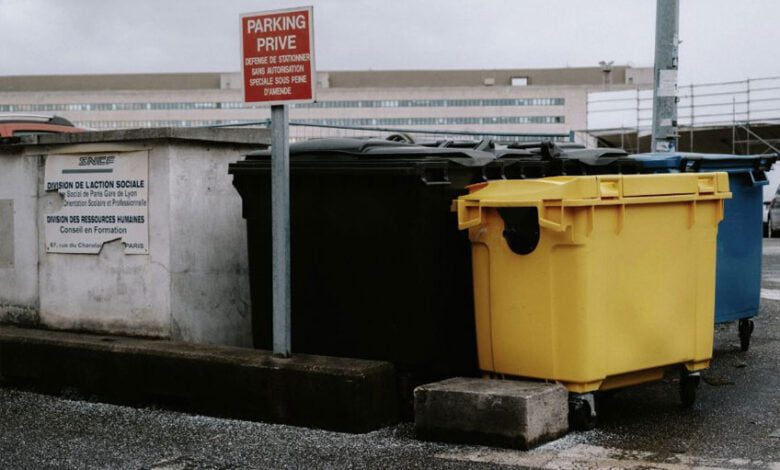Benefits of Hiring Skip Bins for Environmental Health

We live in an age where excessive waste production threatens the very environment that sustains us. With overflowing landfills, plastic pollution choking our oceans, and greenhouse emissions disrupting natural climates, proper waste management has become vital for environmental conservation efforts. This is where the humble skip bin steps up to make a meaningful difference.
By providing an efficient waste disposal solution, hiring skip bins encourages responsible waste sorting at the source and greatly reduces what ends up in already bloated landfills. The proper sorting of waste enables increased recycling, further conserving energy and resources. Additionally, decreasing reliance on environmentally-taxing landfills directly results in lower greenhouse gas emissions. Through their facilitation of sustainable waste management, skip bins minimize waste’s detrimental impacts on environmental health at multiple levels.
The Impact of Waste on the Environment
As the global population rapidly urbanizes in the 21st century, annual waste production has skyrocketed to over 2 billion tonnes and continues to rise year after year. Apart from the sheer volume adding pressure to existing waste management infrastructure, the makeup of contemporary waste poses a complicated disposal challenge. With complex mixes of plastics, electronics, chemicals, and biological waste ending up in landfill facilities designed for limited organic wastes, the environmental impacts of today’s garbage are massive and multifaceted.
Beyond inefficient land usage and soil contamination from expanding landfills, the improper treatment of complex waste results in pollutants entering groundwater, rivers, and oceans. Plastics make up close to 20% of landfill waste and through erosion, find their way into waterways and marine ecosystems. Toxins from electronic waste also seep into waters, negatively impacting aquatic flora and fauna. Biological waste in landfills produces methane, a greenhouse gas more potent than carbon dioxide in its heat-trapping capacities. Uncontrolled methane emissions directly accelerate climate change, while also increasing the risk of explosions in high-pressure landfills.
As communities around the world struggle with bloated landfills, plastic-choked water bodies, contaminated soils, and toxin buildup, the environmental impacts of inefficient waste management become starkly clear. Not accounting for these externalities threatens to make contemporary waste a long-term ecological hazard rather than a manageable by-product of modern societies.
The Role of Skip Bins in Sustainable Waste Management
In this troubling context, hiring skip bins presents an accessible and responsible option for individuals and businesses to dispose of waste without heavily taxing landfill infrastructure. Skip bins are essentially large open containers designed to temporarily hold and transport waste for recycling and treatment at appropriate waste management facilities. These sturdy bins are made of durable materials like steel and come in sizes varying from 3 to 30 cubic yards to accommodate different waste loads.
The process of hiring skip bins begins with identifying what size and type of bin will be suitable for expected waste loads. Special waste bins are available for handling concrete, yard waste, construction rubbish, or even electronic waste. Next, reputed skip bin rental services deliver bins to specified locations and pick them up according to client requirements. After collection, waste is weighed at the facilities to categorize for sorting and the skip bins are emptied and rotated back to clients.
The key advantage of skip bins lies in how they streamline the collection of mixed waste and enable easier segregation downstream. With waste contained at the source, different materials like concrete, wood, metals, paper/cardboard, plastics, green waste, and general refuse can be identified and separated more efficiently. This segregation is the first crucial step for recovering recyclables from waste streams and diverting them from landfills to conserve their resource value. For non-recyclable materials, organized transfer to treatment facilities ensures safe disposal limiting contamination risks.
Reducing Landfill Contribution
Once waste collection moves from mixed curbside bins to source-segregated skip bins, the proportion ending up compressed in landfills drastically reduces. In Australia alone, over 662,000 tonnes of waste was diverted from landfills in 2017-18 through skip bin usage. Beyond recyclables salvaged for reprocessing, organic materials can also be diverted to industrial composting facilities or waste-to-energy conversion plants. Hazardous materials routed through skips also enter specialty treatment streams rather than general landfills.
The reduced landfill contribution is environmentally significant considering their exponentially detrimental impacts on surrounding ecosystems. Land clearing for expansions encroach on forests and wetlands acting as carbon sinks while soil profiles are disrupted, increasing erosion risks. Infrastructure like geo-membranes and leachate collection systems mitigate underground water contamination but still allow periodic discharges of chemically altered leachate into soils and water bodies during peak loads. The rising material value of recyclables and energy generation avenues provide increasing economic incentives to divert waste from landfills through transit options like skip bins.
Enhancing Recycling Efforts
Once filled skip bins enter materials recovery facilities, their contained waste gets emptied on conveyor belts to begin sorting operations. Materials like metals, certain plastics, paper, and glass are separated manually or mechanically through processes like screening, magnetic separation, and floatation. Sorted into defined categories, material bales are then sent for reprocessing into recycled stock.
Diverting recyclables like paper, plastic, and glass reduces the harvesting pressure on virgin resources like wood pulp and crude oil deposits. As recycled materials offset demands for fresh stock, associated extraction, refining, and transportation energies are also conserved. In 2015 alone, over 35 million tons of primary material resources were saved through recycling efforts in Australia as were over 27 million tons of carbon emissions. Improper disposal directly threatens these resource efficiencies offered by recycling. By channeling source-segregated waste from construction sites, factories, or event venues into dedicated recycling streams, skip bin hire enhances recycling yields.
Minimizing Carbon Footprint
Beyond recycling efficiencies, integrating skip bins into waste management systems directly contributes to lowering the greenhouse footprint of disposal processes. As the organic content rots within dense layers of uncompressed waste, landfills become epicenters for methane generation. Despite some facilities attempting methane capture for energy production, much of this potent greenhouse gas inevitably escapes into the atmosphere to exacerbate global warming. By diverting organics into industrial composting or waste-to-energy incineration instead, skip bins mitigate fugitive methane emissions.
Furthermore, the consolidated collection system skip bins enable reduced transportation distances for waste haulage trucks leading to fuel savings. Some progressive skip bin rental services are also switching their truck fleets to biodiesels, electric, and hybrid models for enhanced sustainability. Easing the waste burden on landfills extends their limited lifespans too since expansions and new construction indirectly contribute to emissions through material and vehicle usage. With rising waste generation rates, managing disposal carbon footprints through measures like skip bin adoption becomes pivotal.
Success Stories: Skip Bins for Cleaner Communities
Across Australia, local councils are partnering up with skip bin networks to tackle community waste challenges with positive results. The City of Sydney’s mobile Recycle It! service features custom-built skip bins for recovering recyclables from small businesses for optimal landfill diversion. Such decentralized waste solutions paired with user engagement help the council achieve nearly perfect resource recovery, driven by skip bin infrastructure. Regional Victorian townships too have utilized community skip days for areas without routine waste services to combat illegal dumping menaces. Residents brought agricultural plastics, e-waste, and other problem refuse to centralized bins, removing legacy dump sites.
On a bigger scale, major sporting events like the Australian Open tennis tournament have hired specialized tennis ball skip bins to sustainably manage the 200,000 oddballs generated during the championships. Diverting tennis balls from landfills enables their responsible recycling and reuse in other manufacturing industries. Such examples highlight the versatility and customization potential of skip bins for all scales and sources of waste to minimize disposal impacts. Hiring the right skip bin truly unlocks cleaner, greener waste management.
Conclusion
In closing, hiring skip bins accentuates all three pillars of sustainability – environmental, economic, and social – when addressing contemporary waste challenges. Skip bins divert recyclables back to reuse industries while routing organic waste to resource recovery processes like composting for closed material loops. Environmentally, they conserve embedded carbon and water footprints of primary resources while reducing demands on landfills to cut soil, water, and air contamination risks. Economic incentives through recycling and waste-to-energy revenues fund improved waste infrastructure minimizing disposal externalities shouldered by communities near landfills. Finally, skip bins offer an ethical community-centric waste solution improving local environments through reduced illegal dumping and litter.
With the threat of waste undermining planetary health reaching dire levels, rethinking personal disposal choices allows for driving change at grassroots levels. Using one’s waste “votes” towards skip bin hire over general waste collection amplifies calls for the systemic changes still needed in the sector. Making conscientious waste decisions and demanding better systemic infrastructure brings us closer to the ideals of a circular rather than the currently dominant linear economic system. The responsible usage of skip bins serves as a promising milestone along that sustainability journey. Reduced waste impacts through dedicated bins contribute towards maintaining the delicate ecological balance sustaining us all on this planet we call home.




